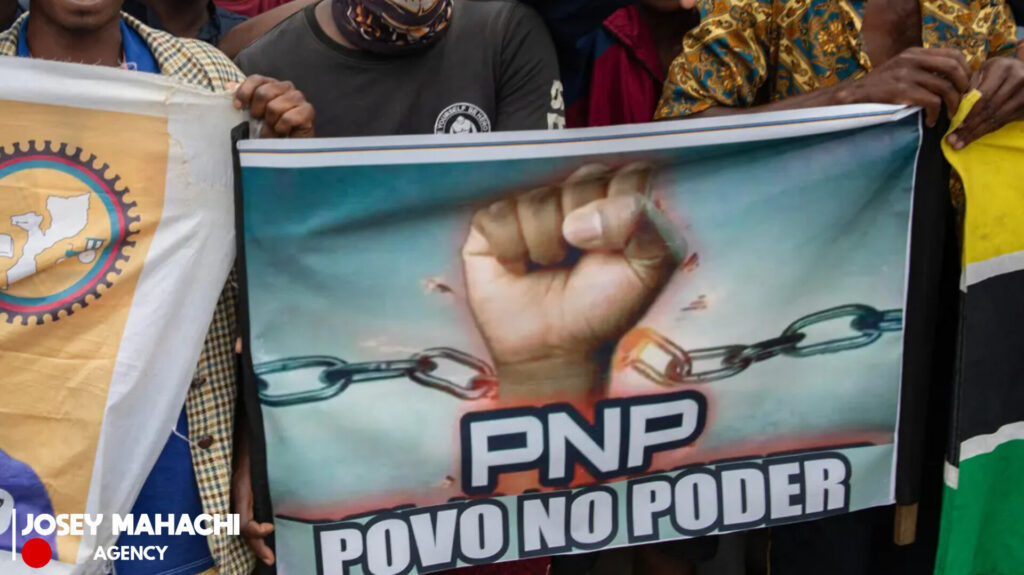By : Lloyd Mahachi
In the midst of Mozambique’s chaotic demonstrations, a song has emerged as the unofficial anthem of the protests. “Povo no Poder” or “People in Power” by rap star Azagaia has become a rallying cry for the tens of thousands of Mozambicans who have taken to the streets.
The song’s message of resistance and defiance has resonated with the protesters. They believe that the presidential election was rigged by the long-governing party, Frelimo. Despite the election results, which declared Daniel Chapo of Frelimo the winner with 65 percent of the vote, protesters have denounced the result as fraudulent.
The protesters have rallied behind the top opposition candidate, Venâncio Mondlane. They are demanding change and accountability from their government. Azagaia’s song has become a symbol of their resistance and a call to action for others to join the fight for democracy and justice.
Azagaia, born Edson Amândio Maria Lopes da Luz, was known for his fearless lyrics. He criticized the government, which was a risky move in a nation where the state has been known to crush dissent. His music has been censored on state media, but that hasn’t stopped his message from inspiring many.
After Azagaia’s death last year at the age of 38, young people flocked to the streets to pay tribute to him. Those tributes turned into processions where the youth aired their grievances. The police responded with tear gas, which only fueled the anger and frustration of the protesters.
The anger over the police response has in part fueled young people’s protests against the election results. Azagaia’s lyrics spoke to the very issues that have stirred public anger. He sang about the government’s failure to help the people of the oil-rich northern province of Cabo Delgado.
Azagaia’s songs, such as “The March,” “Woe to Us,” and “Sell the Country,” have become a playbook for the youth uprising. His music has given a voice to the frustrations and aspirations of Mozambique’s youth. They are seeking a better future and a more just society.
But no song has captured the imagination like “Povo no Poder.” Azagaia released it in 2008 amid huge protests over rising costs of food and public transportation. Although that was 16 years ago, it was almost as if Azagaia had predicted how the situation would play out in Mozambique today.
The song’s impact is a testament to Azagaia’s legacy as a fearless and prescient artist. He continues to inspire Mozambique’s youth to demand change and accountability from their government. His music has become a powerful tool for social change and a symbol of resistance against oppression.
As the protests continue, Azagaia’s song remains a rallying cry for the protesters. They are determined to bring about change and to create a better future for themselves and their country. Azagaia’s legacy lives on through his music, which continues to inspire and motivate the youth of Mozambique.
The situation in Mozambique remains volatile, with protests and demonstrations continuing across the country. The government has responded with force, but the protesters remain determined and defiant. Azagaia’s song has become an anthem for the protests, a symbol of resistance and a call to action for others to join the fight for democracy and justice.
In the midst of the chaos and uncertainty, Azagaia’s music remains a powerful force for change. His legacy continues to inspire and motivate the youth of Mozambique, who are seeking a better future and a more just society. As the protests continue, one thing is clear: Azagaia’s music will remain a powerful symbol of resistance and a call to action for generations to come.
Editor : Josephine Mahachi

